Boston stands as a hub of innovation and academic excellence, making it an ideal city for aspiring bioengineers.
With its rich history in education and cutting-edge research facilities, students flock here to gain top-tier knowledge and hands-on experience in bioengineering.
Whether it’s groundbreaking research or state-of-the-art labs, Boston’s institutions offer unparalleled opportunities.
In this article, we’ll explore the eight best bioengineering schools in Boston. These schools not only provide a robust curriculum but also foster an environment where students can thrive and contribute to the future of bioengineering.
From renowned universities to specialized programs, discover where your bioengineering journey can begin.
Top 8 Best Bioengineering Schools Boston
Boston is home to several prestigious institutions offering top-tier bioengineering and biomedical engineering programs.
These schools are known for their innovative research, state-of-the-art facilities, and strong industry connections, making them attractive destinations for students pursuing careers in bioengineering.
Here are the top 8 bioengineering schools in the Boston area, known for their academic excellence, research opportunities, and industry connections:
1. Massachusetts Institute of Technology
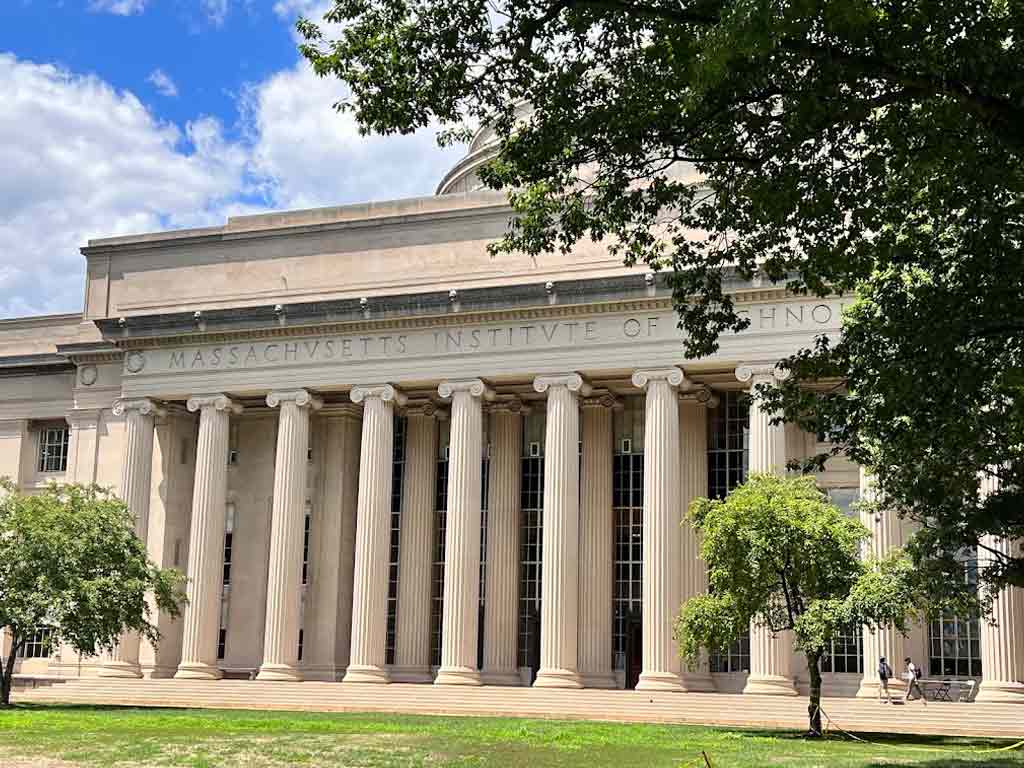
Ranked as the number one engineering school, MIT offers unmatched opportunities in bioengineering. Its application fee is $75 for U.S. and international students.
Full-time tuition costs $59,750 per year. The institution boasts top-tier faculty and cutting-edge labs, making it a hub for pioneering research and innovation in biomedical engineering.
Students benefit from a comprehensive curriculum that emphasizes both theoretical knowledge and hands-on experience.
With its location in Cambridge, just outside Boston, MIT provides easy access to numerous biotech firms and research hospitals, fostering industry connections and real-world learning.
2. Boston University
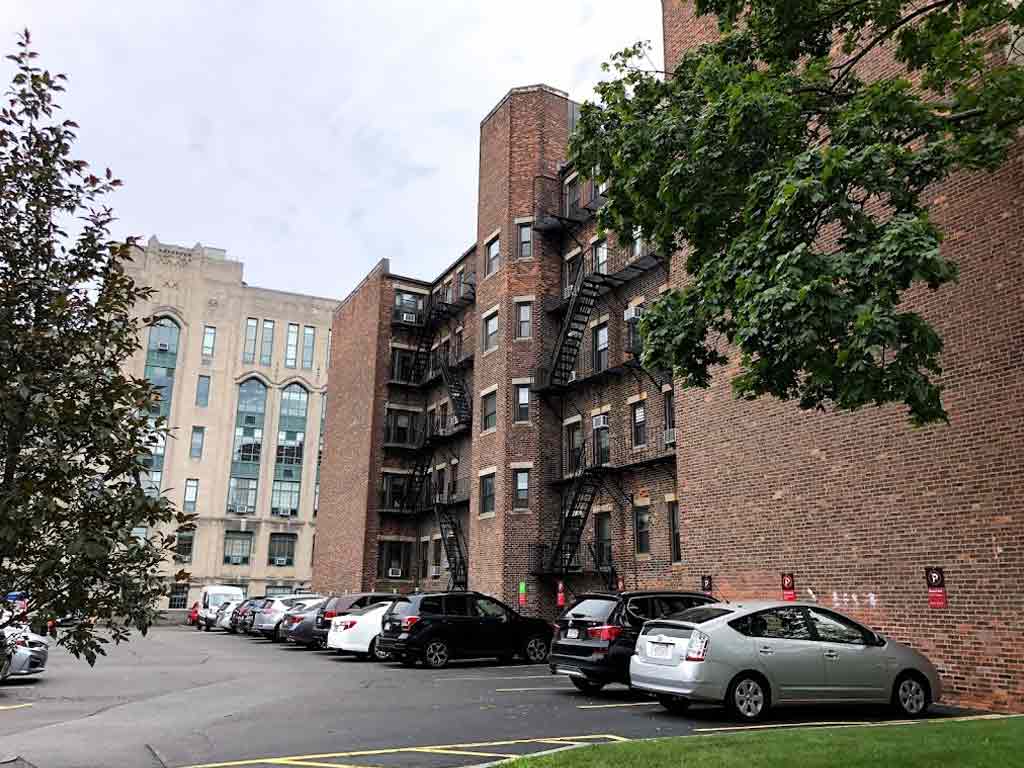
Boston University (BU) ranks #31 among the best engineering schools and offers a strong program in Biomedical Engineering.
With an application fee of $95, BU’s full-time tuition is $63,798 per year. BU provides an excellent combination of theoretical knowledge and hands-on experience, making it a prime choice for aspiring bioengineers.
The university boasts state-of-the-art research facilities, fostering innovative research and providing students with cutting-edge tools and technology.
BU’s location in Boston places students in the heart of a biotech hub, offering numerous opportunities for internships and collaborations with leading biotech firms and research hospitals.
3. Harvard University (Paulson)
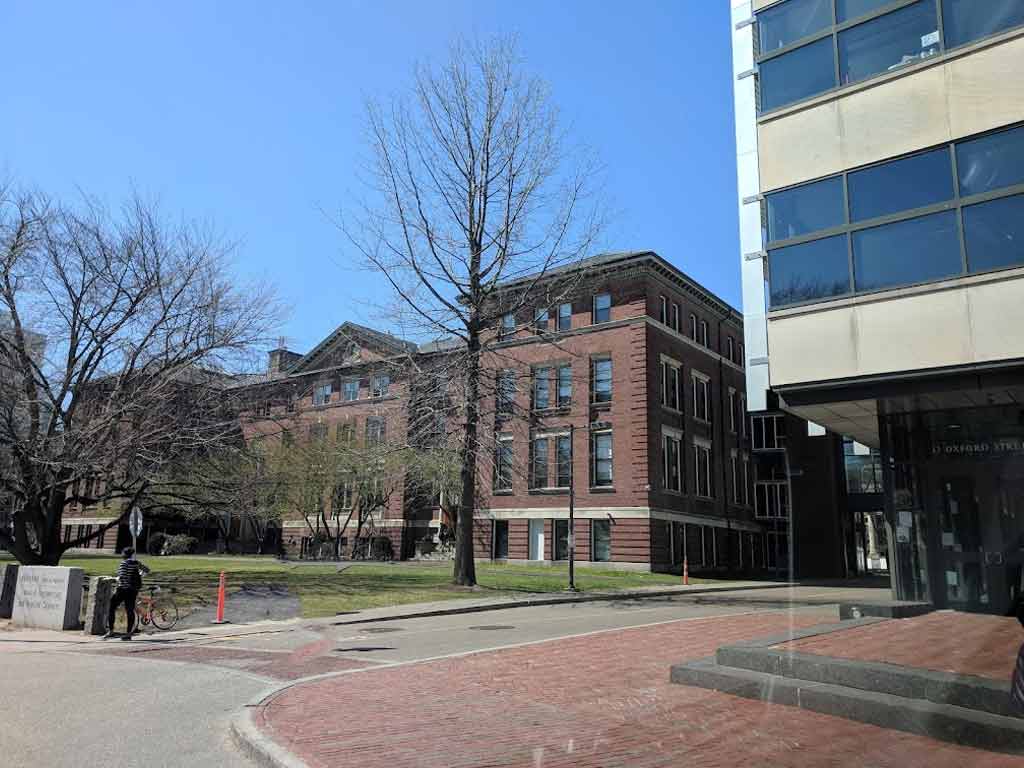
Harvard University’s Paulson School of Engineering ranks #20 among the best engineering schools. Located in Allston, MA, it offers a top-notch program in Biomedical Engineering. With an application fee of $105 for both U.S. residents and international students, the full-time tuition is $61,760 per year.
Paulson emphasizes interdisciplinary research, providing students access to cutting-edge resources and laboratories.
Students benefit from Harvard’s renowned faculty and extensive industry connections, fostering a robust learning environment.
Situated in Boston’s biotech hub, Harvard offers numerous opportunities for internships and collaboration with leading research hospitals and biotech firms.
This strategic location enhances practical learning and opens doors for future scientific contributions.
4. Northeastern University
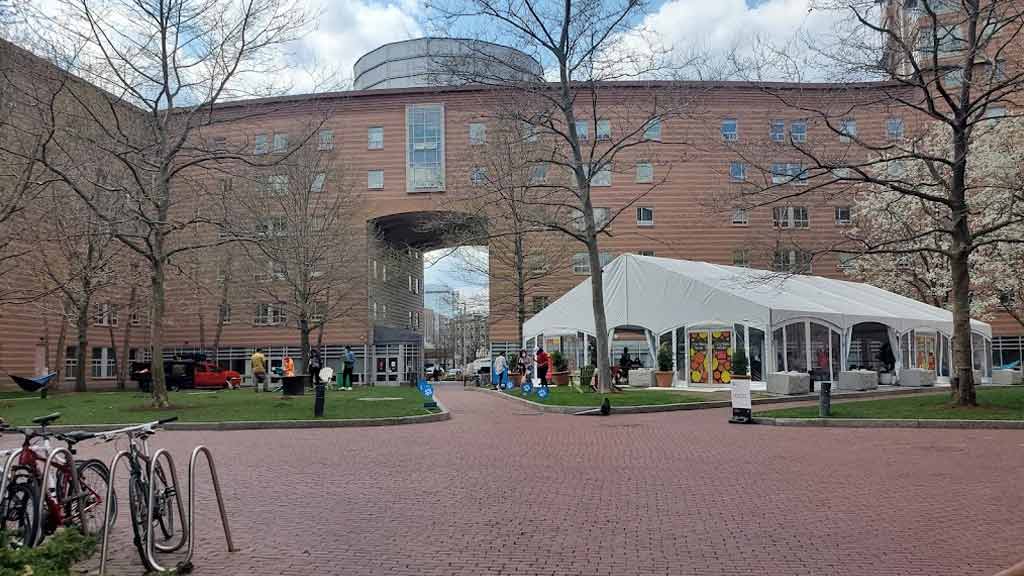
Northeastern University is a significant player in Boston’s bioengineering scene. Ranking #38 in Best Engineering Schools, it offers a strong program in Biomedical Engineering.
Its rolling application deadline and $100 application fee make it accessible. Full-time tuition is $54,700 per year, which is competitive for the quality of education provided.
Northeastern’s College of Engineering prides itself on experiential learning. The co-op program allows students to gain hands-on experience with leading biotech firms and research hospitals in Boston. This practical experience is invaluable for bioengineering students.
The university’s state-of-the-art labs and facilities bolster its reputation. With faculty leading cutting-edge research, students are mentored by some of the best in the field.
This strong combination of classroom learning and real-world application sets Northeastern apart.
5. Tufts University
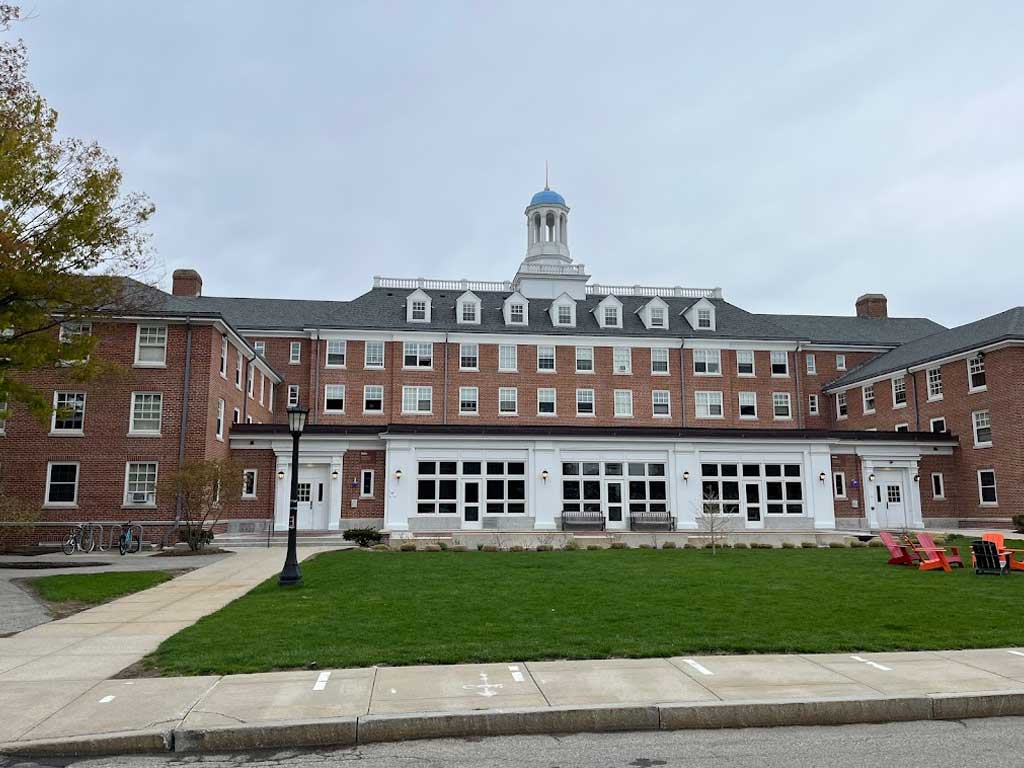
Located in Medford, MA, Tufts University ranks #68 among the best engineering schools, tying with others in the category.
With an application fee of $85 for both U.S. residents and international students, Tufts offers a competitive Biomedical Engineering program.
Full-time tuition stands at $1,730 per credit hour, making it essential to manage expenses carefully.
Tufts focuses on integrating engineering with the life sciences through interdisciplinary research and collaboration. Students benefit from access to advanced research facilities and experienced faculty members.
The university emphasizes practical learning, encouraging students to engage in hands-on projects and internships.
Tufts’ proximity to Boston’s biotech hub provides ample opportunities for industry engagement, facilitating real-world experiences that complement classroom instruction.
6. University of Massachusetts–Amherst
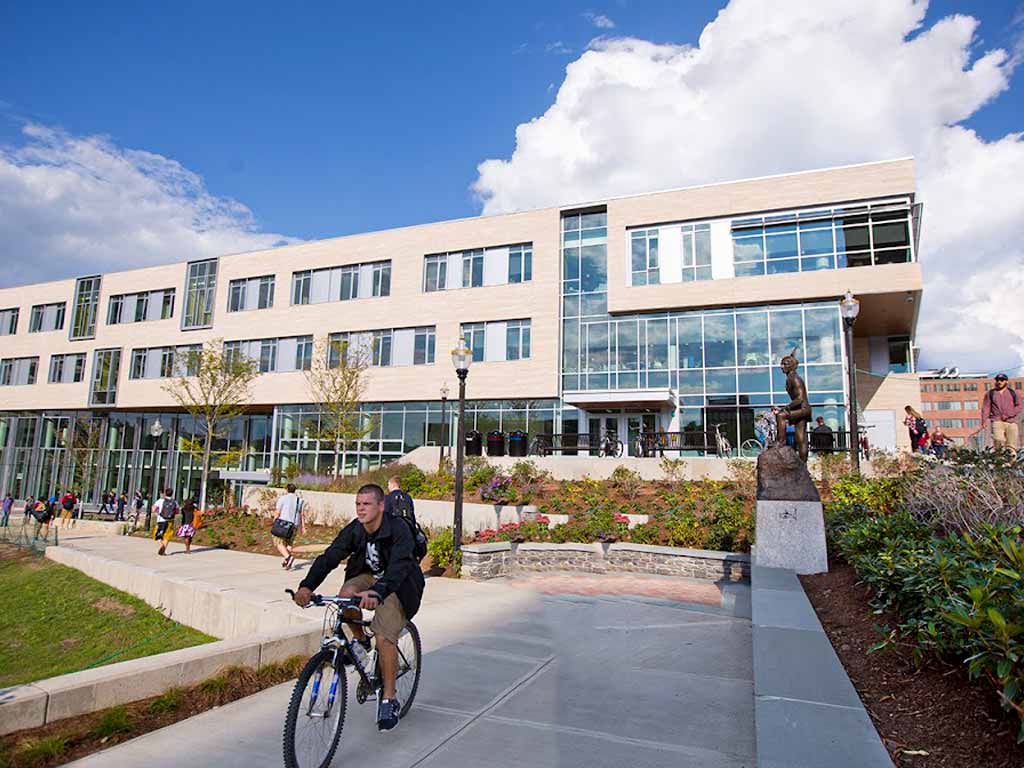
The University of Massachusetts–Amherst ranks #48 among the best engineering schools, tied with other institutions.
UMass Amherst’s Biomedical Engineering/Bioengineering program is known for its innovative curriculum and cutting-edge research.
With an application fee of $85 for both U.S. residents and international students, the university’s full-time tuition is $15,527 per year.
UMass Amherst offers students hands-on experience, emphasizing interdisciplinary collaboration and practical application.
The program provides access to state-of-the-art labs and experienced faculty, fostering a rich learning environment.
Located in Amherst, MA, the university connects students with nearby biotech firms and research institutions, ensuring industry-relevant education and opportunities for internships and research projects.
7. University of Massachusetts–Dartmouth
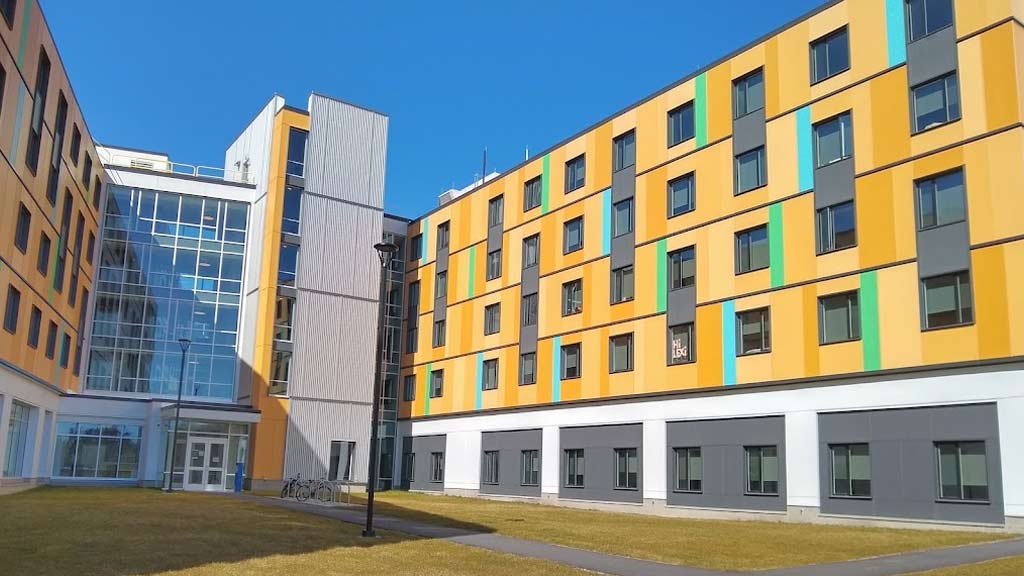
The University of Massachusetts–Dartmouth ranks #170 in the list of Best Engineering Schools and offers a competitive Biomedical Engineering/Bioengineering program.
The application fee is $60 for both U.S. residents and international students. Full-time tuition is $16,390 per year.
UMass Dartmouth emphasizes hands-on learning combined with theoretical knowledge. Students gain access to state-of-the-art labs and engage in innovative research projects.
The university’s strategic location in North Dartmouth, MA, connects students with biotech firms and research institutions, fostering practical learning and industry collaboration.
This setup ensures students graduate with the skills and experience needed in the bioengineering field.
8. University of Massachusetts–Lowell
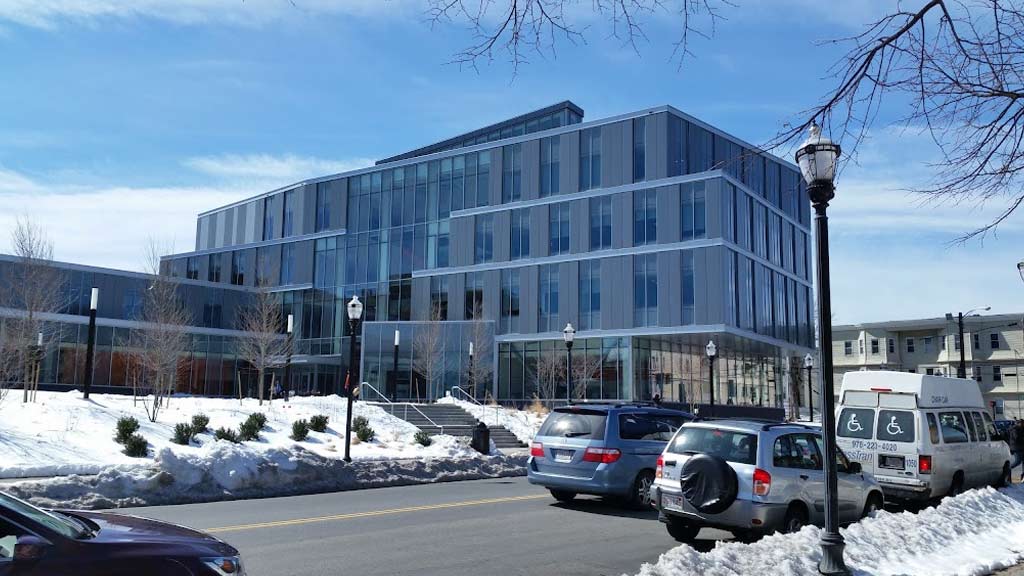
The Francis College of Engineering at the University of Massachusetts–Lowell offers a reputable Biomedical Engineering/Bioengineering program.
Ranked #102 among the Best Engineering Schools, the program emphasizes innovative research and hands-on learning. With a rolling application deadline, the application process is flexible for prospective students.
Students benefit from state-of-the-art labs and experienced faculty actively involved in cutting-edge research. The university’s collaborative environment encourages interdisciplinary projects, providing students with industry-relevant skills.
Located in Lowell, MA, the university’s proximity to biotech firms and research hospitals enhances practical learning through internships and collaborations.
UMass Lowell balances affordability and quality with competitive tuition fees, making it an excellent choice for aspiring bioengineers.
Specialties of Bioengineering Schools Boston
Boston is home to some of the most prestigious institutions offering bioengineering programs. These schools excel in areas such as medical devices, biotechnology, tissue engineering, and computational biology.
Here are the key specialties of bioengineering schools in Boston:
Biomedical Devices & Synthetic Biology
This specialty focuses on developing cutting-edge biomedical devices and innovations in synthetic biology.
Students work on creating technologies such as artificial organs, advanced prosthetics, and molecular-level diagnostic tools.
Emphasis is placed on integrating engineering with biology to address complex medical challenges.
Tissue Engineering & Regenerative Medicine
Students specializing in tissue engineering explore methods to grow biological tissues and organs in the lab.
This field combines materials science and biotechnology to develop therapies for repairing or replacing damaged tissues.
Research often focuses on stem cells, scaffolds, and bioactive molecules that stimulate regeneration.
Neuroengineering
This area concentrates on the interface between engineering and neuroscience. Students work on technologies aimed at understanding the brain and nervous system, such as brain-computer interfaces, neural prosthetics, and devices that help restore sensory or motor functions. The focus is on designing tools that improve neural diagnostics and treatments.
Biomechanics & Biomechatronics
Biomechanics involves the study of the mechanics of biological systems, while biomechatronics combines biology, mechanics, and electronics to create robotic prostheses and assistive devices.
Research in this specialty often includes developing wearable devices that improve movement for individuals with disabilities.
Genomics & Bioinformatics
Students in this specialty work on decoding and analyzing genetic information. This area is key to precision medicine, where treatments are tailored to individual genetic profiles.
Bioinformatics tools are used to process large data sets, helping to identify genetic markers for diseases and predict patient responses to treatments.
Drug Delivery & Nanotechnology
This specialty explores new methods for delivering drugs directly to targeted areas in the body using nanotechnology.
Research focuses on creating nanoparticles that can carry therapeutic agents, improving the efficiency and precision of treatments while minimizing side effects.
Biophotonics & Imaging
Specializing in biophotonics involves developing light-based technologies to visualize biological tissues and processes.
Students focus on designing advanced imaging systems, such as optical coherence tomography and fluorescence imaging, which are used in diagnostics and medical procedures.
Systems Biology & Computational Modeling
This area involves using computational tools to model complex biological systems, predicting how they behave under different conditions.
Students work on projects that integrate mathematical models with experimental data to understand diseases and develop new therapeutic strategies.
Frequently Asked Questions
What is the application fee and tuition for MIT’s bioengineering program?
MIT has a $75 application fee and a full-time tuition of $59,750 per year for its bioengineering program.
How does Boston University rank for biomedical engineering?
Boston University (BU) ranks #31 among the best engineering schools and has a highly regarded Biomedical Engineering program.
What makes Harvard’s bioengineering program stand out?
Harvard University’s Paulson School of Engineering ranks #20 among the best engineering schools and emphasizes interdisciplinary research with access to cutting-edge resources and labs.
What is unique about Northeastern University’s bioengineering program?
Northeastern University ranks #38 and features a co-op program that provides experiential learning by partnering students with leading biotech firms and research hospitals in Boston.
What is the application fee and tuition for Tufts University’s bioengineering program?
Tufts University has an application fee of $85 and a tuition of $1,730 per credit hour for its bioengineering program.
How does UMass Amherst support bioengineering students?
UMass Amherst’s Biomedical Engineering/Bioengineering program emphasizes interdisciplinary collaboration and practical application, providing students with hands-on experience and industry connections.
What benefits does UMass Dartmouth offer for bioengineering students?
UMass Dartmouth offers a competitive Biomedical Engineering/Bioengineering program with a focus on hands-on learning and state-of-the-art research facilities, along with strategic industry partnerships.
How does UMass Lowell enhance bioengineering education?
UMass Lowell emphasizes innovative research and hands-on learning, providing state-of-the-art labs and collaborative projects with local biotech firms and research hospitals.
Conclusion
Boston stands out as a premier destination for aspiring bioengineers due to its world-renowned institutions and advanced research facilities.
The Massachusetts Institute of Technology (MIT) offers unparalleled opportunities with a robust curriculum and strategic industry connections.
Boston University (BU) combines theoretical knowledge and practical applications, providing top-tier research facilities in the heart of the biotech hub.
Harvard’s Paulson School of Engineering emphasizes interdisciplinary research, granting students access to cutting-edge resources and extensive collaborations.
Northeastern University’s co-op program bridges classroom learning with real-world experience, while Tufts University integrates engineering with life sciences through hands-on projects.
UMass Amherst, UMass Dartmouth, and UMass Lowell each offer unique strengths, providing innovative curricula and essential industry connections.
These schools collectively foster a nurturing environment for bioengineering students, preparing them for significant contributions to the field.
Natalie Kurtzman